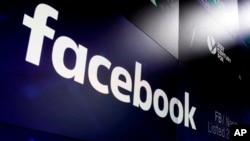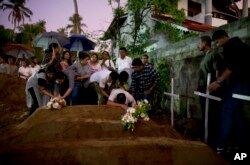People in Sri Lanka are experiencing a second day without access to some of the most popular social media sites within the country, after the government shut down the services in the wake of a terror attack that killed nearly 300 people and injured hundreds on Easter Sunday.
Facebook and its properties — Instagram, WhatsApp and Messenger — were blocked. Access to Snapchat was turned off, as was Viper, a popular chat application.
The government said it blocked access to the sites because false news reports were spreading through social media.
A lack of trust
Sri Lanka's shutdown of social media is a "wake-up call," said Ivan Sigal, executive director of Global Voices, a digital advocacy and journalism organization.
The shutdown reflects governments' worldwide growing mistrust of Facebook, Google and other digital platforms during periods of crisis, he said.
"What's different to me is this sense that enough is enough' with the internet companies. The narrative up to three years ago was that technology companies can help us in times of crisis," he said. "There really is a shift in the public conversation of what we expect from technology companies — from a sense that they are positive forces to ones that are more complicated and possibly negative."
Shutdowns are becoming more common after politically sensitive events such as elections, said Peter Micek with Access Now, a digital rights group.
What appears to be changing is that "authorities are putting tragedies such as a terrorist attack or a disaster in the same bucket as politically sensitive events," Micek said. "I don't know how governments can communicate with their constituencies with these media bans in place. They only increase the risks to health and safety."
Social media-fueled unrest
Sri Lankans have experienced social media shutdowns in the past. In March 2018, Sri Lanka turned off access for more than eight days after anti-Muslim riots that left three people dead.
The restrictions then were at first accepted by many, said Alp Toker, executive director of Netblocks, a digital rights group based in London that monitors government shutdowns. There was a sense that social media was fueling the flames. But citizens quickly clamored for access to be restored, he said.
"People realized they are attached to the platforms," Toker said.
Facebook's safety check
A Facebook spokesperson said that the company is "working to support first responders and law enforcement, as well as to identify and remove content which violates our standards. We are aware of the government's statement regarding the temporary blocking of social media platforms."
After the terror attacks in Sri Lanka, Facebook turned on its Safety Check service, which asks people in the affected area to report they are safe.
It is unclear if anyone in the country is able to access the site.






